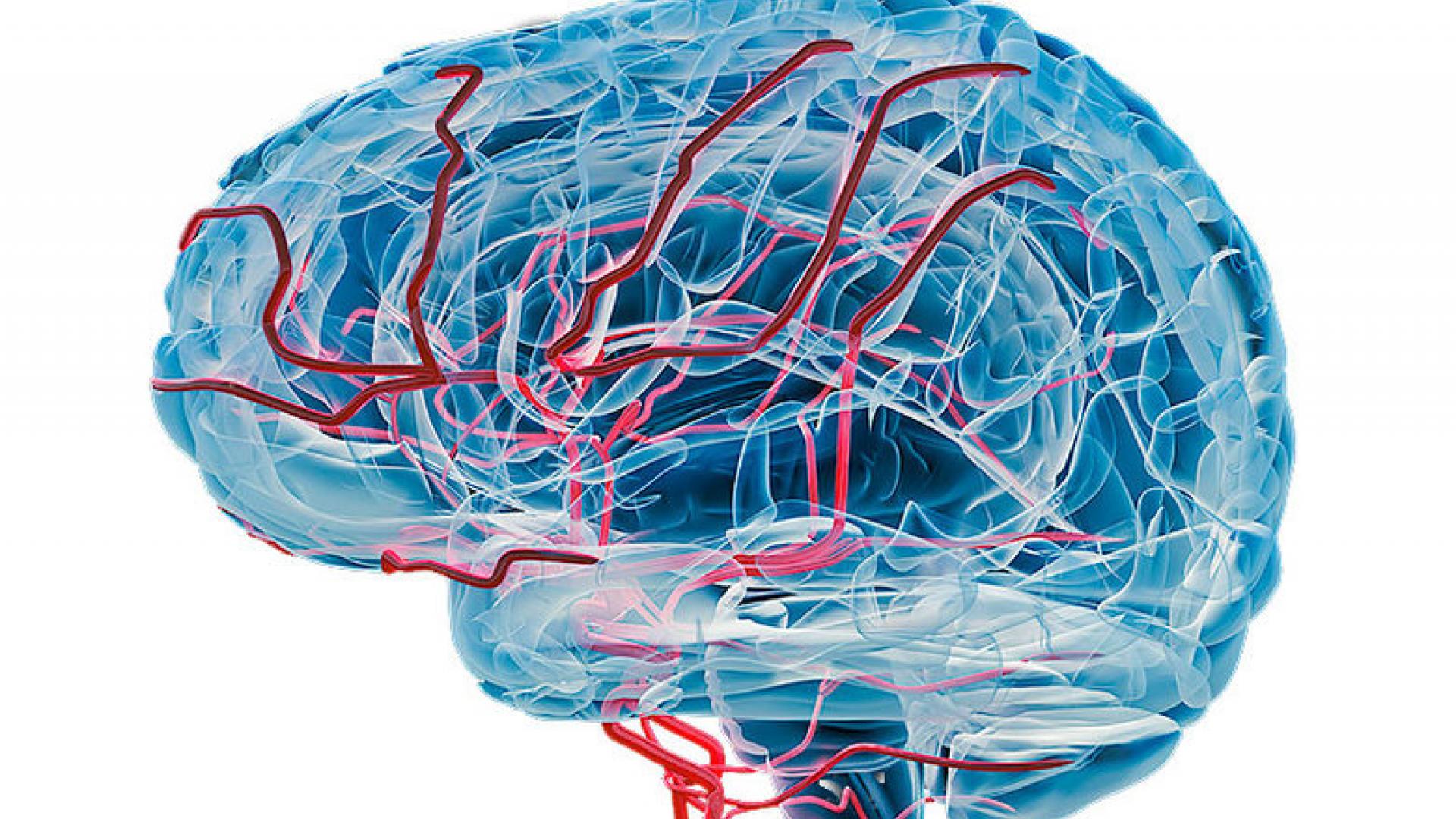
Learn about the treatment options for vascular cognitive impairment (VCI) a term that includes the spectrum from mild cognitive changes to severe dementia.
Ms. Anna Wilson*, a 78-year-old retired teacher, visited my office at her husband’s suggestion. She had lost much of her former zest for life over the preceding two years. She had been an energetic and social person and now felt it more and more difficult to enjoy family gatherings.
Her husband added that “she has slowed down – it’s hard for her to get going, and her thinking is slower too. When we bought a new computer, she had a really hard time learning how to send an email even though she used to do that with no trouble. She can do it now if she refers to her ‘cheat sheet’ notes. Her memory is not so bad, but she definitely needs more time to remember things”.
Mrs. Wilson was not in ideal physical health, although she had tried to take good care of her diabetes, high blood pressure, and high cholesterol. She did not smoke and she drank very little alcohol. Over the years, she had put on too much weight, and physical exercise had never been appealing to her, so her lifestyle was sedentary. Her blood tests showed nothing unexpected. There were mild abnormalities on her brain MRI: no actual strokes were seen, but there were many areas suggesting damage small blood vessels being a part to the part of the brain below the cerebral cortex (the outermost layer of the brain).
Her husband asked, “Is there anything I can do to make this better?”
I did not characterize Ms. Wilson’s condition as dementia because she remained independent for the most part. She was still successfully keeping house, managing her bills, and driving without noticeable difficulty although she felt more cautious on unfamiliar roads. She and her husband were right to be concerned, though, because her difficulties with planning, focusing her attention, remembering instructions, and an increasing need for “work arounds” such as a cheat sheet to use the computer are characteristic signs of mild cognitive impairment.
Her depressive symptoms and MRI findings, along with diseases known to affect the health of her arteries (diabetes, high blood pressure, and high cholesterol), suggested that the cause of her mental changes was vascular. That means that her brain’s function was suffering as a result of damaged blood supply and related consequences of vascular disease.
If we could turn back the clock a hundred years and send Ms. Wilson to a doctor of that era, she would likely have been diagnosed with “hardening of the arteries.” At that time, Alzheimer’s disease (AD) was thought to affect adults under 65, but vascular aging was viewed as the most common reason for cognitive decline in adults older than that. This vascular explanation was popular until the 1960s, when pioneering brain autopsy studies showed that many older adults with dementia before death had plaques and tangles in their brains, just like those found in younger adults with AD. As a result, AD has been the main focus of dementia study for decades, although vascular disease is again being recognized for the significant role that it plays.
Vascular Cognitive Impairment
Now, vascular cognitive impairment (VCI), a term that includes the spectrum from mild cognitive changes to severe dementia, is considered the second most common cause of dementia, and we also have learned that many older adults develop both AD and vascular disease, a combination that results in worse cognitive decline and increased behavioral problems than those from either disease alone.
Researchers have been challenged to understand and classify the brain effects of vascular disease. In part, this is because our earlier definition of dementia, in use until 2015, called for the presence of a debilitating memory problem. However, VCI can affect other aspects of thinking and behavior earlier and more severely. Unlike people with AD, whose recent short-term recall is often affected early on, people with VCI often develop more noticeable difficulty with attention, information processing, and executive functioning (the ability to plan, organize, remember things, prioritize, or pay attention to tasks).
Memory and language effects can be more variable. Behavioral changes such as depression and apathy are common and may mislead clinicians into diagnosing depression as the main problem. One consequence of this is that VCI can go unrecognized longer. The standard tests that are good for recognizing AD are not as sharp in their recognition of VCI.
A Group of Diseases
Another important feature of VCI is that it is more accurately considered a group of diseases than a single disease. In 15 to 30 percent of people who suffer a major stroke, VCI follows within three months. Another 20 to 25 percent of these people will develop a delayed dementia. Multiple smaller strokes, called lacunar infarcts, can also lead to VCI.
The largest number of people with VCI, we now think, have widespread but non-stroke damage to small subcortical blood vessels, a condition sometimes called Binswanger’s disease. In some people, bleeding into the brain or inadequate supply of blood leads to VCI. One rare but very damaging hereditary form of VCI that affects younger adults is called CADASIL, which stands for cerebral autosomal dominant arteriopathy with subcortical infarcts and leukoencephalopathy. The end result of all these different conditions is damage to brain cells and changes in cognition and behavior.
Treatment Options
What can Mrs. Wilson do? So far, no medication has been approved for the treatment of VCI but the medicines used for AD are often used “off-label” in patients with VCI. This is not such a bad idea, since so many people with VCI also have the brain disease findings of AD. Unfortunately, the effects of cholinesterase inhibitors, (such as Aricept® or Exelon®), and Namenda® on VCI symptoms has been very limited in the small number of studies that explore this question. Some studies show a small cognitive benefit but behaviors associated with VCI are not likely to be helped by these medications. Depression, agitation, and psychotic symptoms sometimes respond to off-label use of other medications. For example, a recent study reported improvement of depression using Zoloft® (sertraline) treatment in a group of patients with VCI. More work is needed in this area to understand the effectiveness of the medications already in use.
Experimental Treatments
Also, some experimental medications are being studied for treatment of VCI. Most of these seek to reduce vascular disease or increase blood flow to the brain’s arteries. Several cardiac medications are being researched, including some calcium channel blockers.
So far, though, the most promising evidence supports prevention. Mid-life blood pressure reduction in people with elevated pressure has been shown to prevent stroke and cognitive decline, though the effect on cognition is a more modest one. Mid-life cholesterol reduction has been suggested, too, but so far, the evidence is not convincing. Control of diabetes should reduce the development and progression of damaging vascular changes. In the famous FINGER study, which followed a group of cognitively healthy or mildly impaired older adults in Finland for two years, the combination of vascular risk reduction, nutritional advice, cognitive exercises, and physical activity was reported to reduce cognitive decline.
Mrs. Wilson was relieved to hear that she did not have dementia. She took to heart our encouragement to manage her diabetes, blood pressure, and cholesterol meticulously. She was glad to learn that medical and lifestyle interventions might reduce her risk for progression to dementia. We made sure that she was not smoking, didn’t use excessive alcohol, and didn’t have a sleep disorder. We treated her depression with sertraline. We encouraged her to lose weight, increase her physical exercise, eat a Mediterranean-type diet, and keep active mentally and socially. As we await the availability of a VCI-reducing medication, these preventive lifestyle changes are our best tools for improving Mrs. Wilson’s current quality of life and delaying or preventing progression to dementia.
*To protect anonymity, Mrs. Wilson’s story is a composite of symptoms from various patients.
About BrightFocus Foundation
BrightFocus Foundation is a premier global nonprofit funder of research to defeat Alzheimer’s, macular degeneration, and glaucoma. Since its inception more than 50 years ago, BrightFocus and its flagship research programs—Alzheimer’s Disease Research, Macular Degeneration Research, and National Glaucoma Research—has awarded more than $300 million in research grants to scientists around the world, catalyzing thousands of scientific breakthroughs, life-enhancing treatments, and diagnostic tools. We also share the latest research findings, expert information, and resources to empower the millions impacted by these devastating diseases. Learn more at brightfocus.org.
Disclaimer: The information provided here is a public service of BrightFocus Foundation and is not intended to constitute medical advice. Please consult your physician for personalized medical, dietary, and/or exercise advice. Any medications or supplements should only be taken under medical supervision. BrightFocus Foundation does not endorse any medical products or therapies.
- Other Dementias
- Treatments








